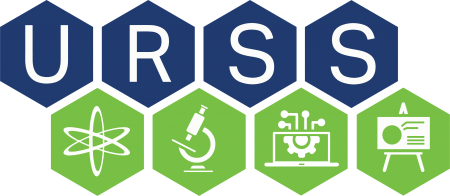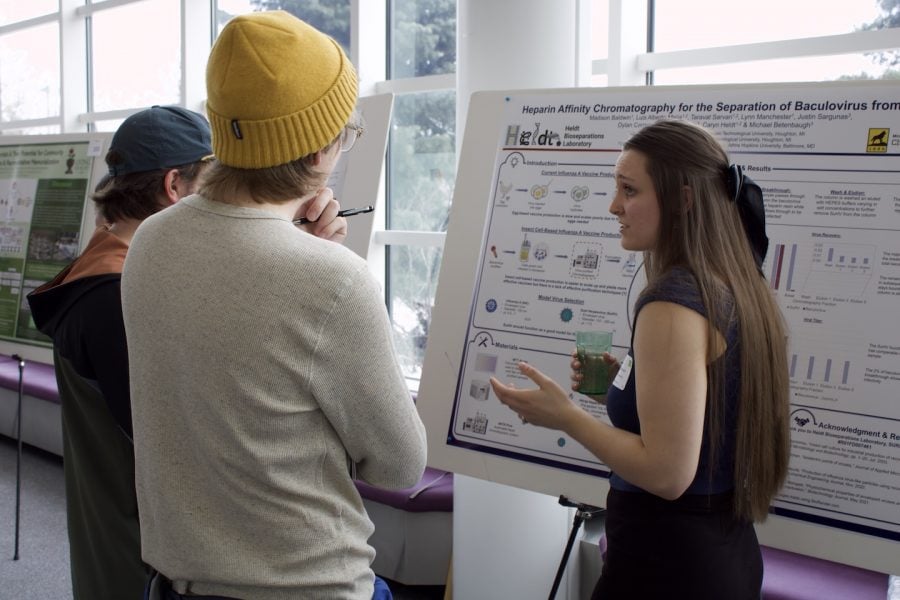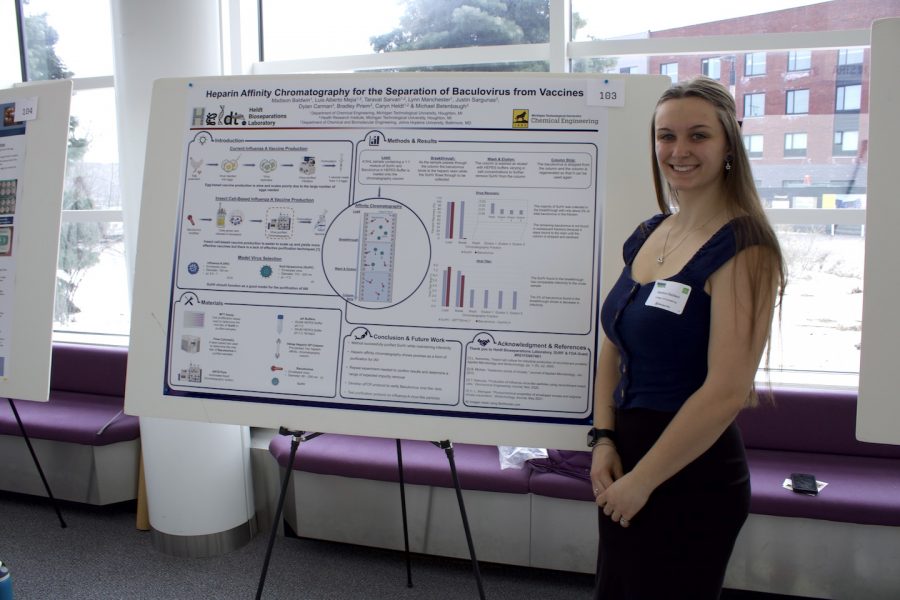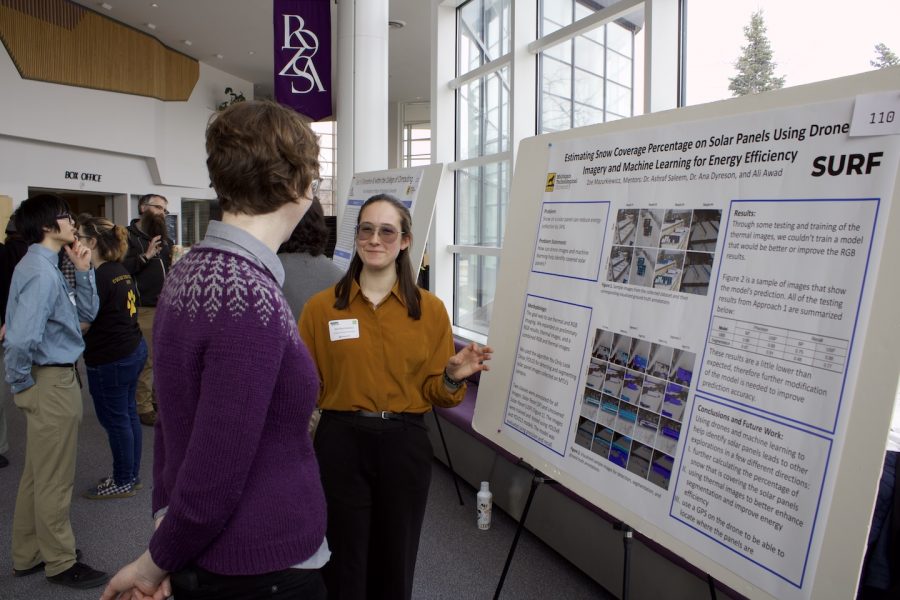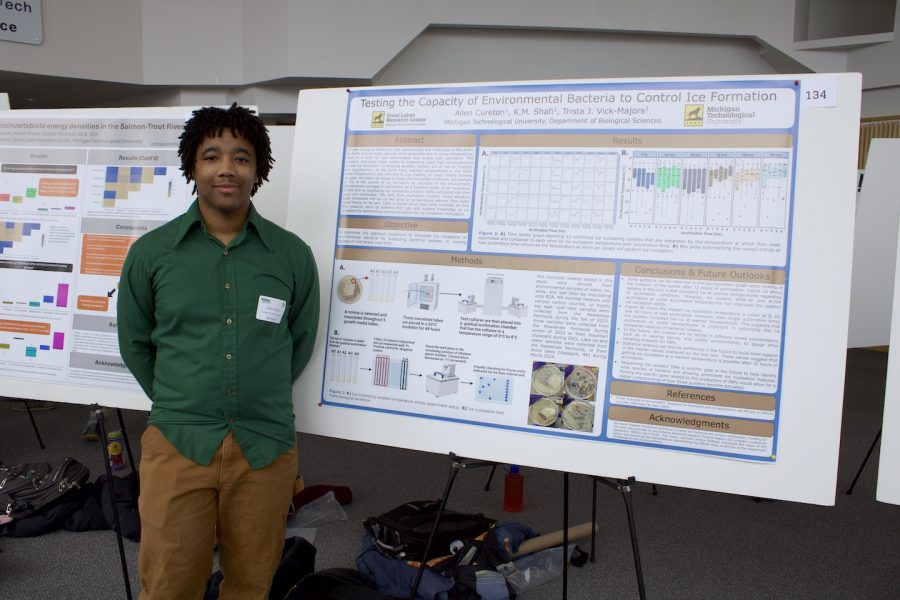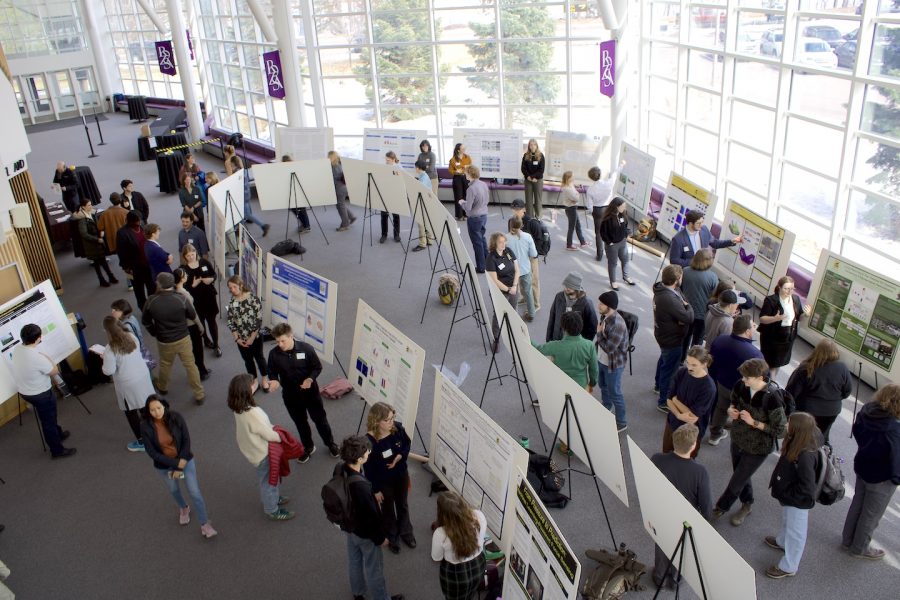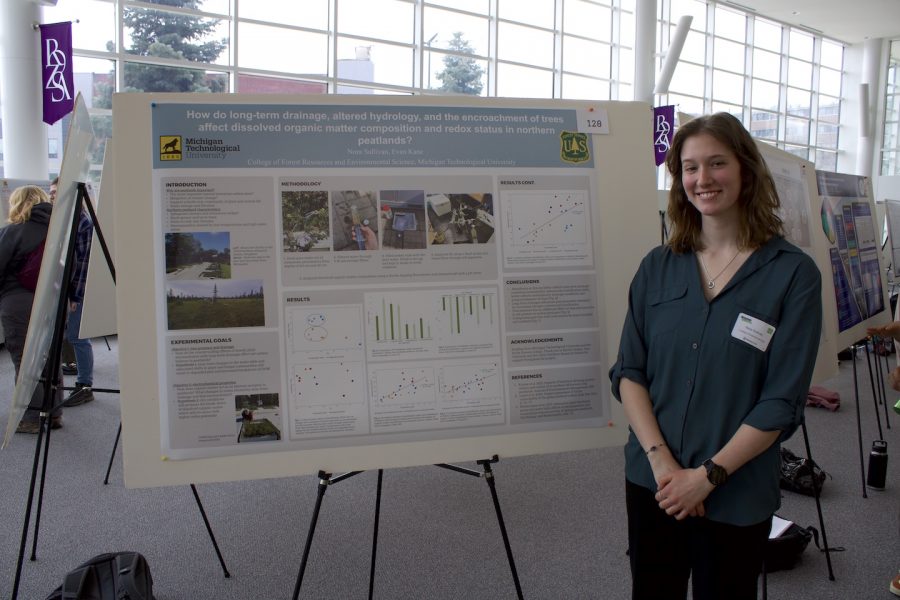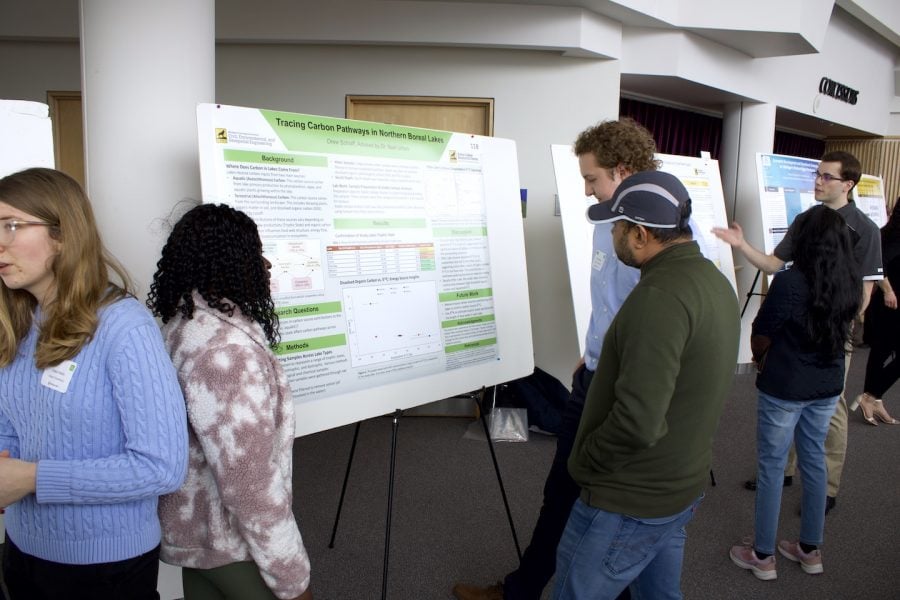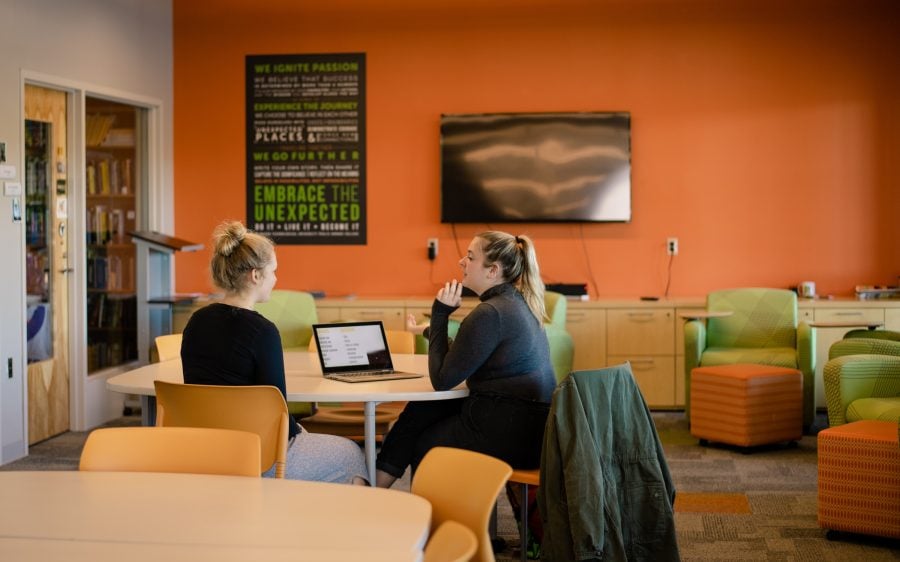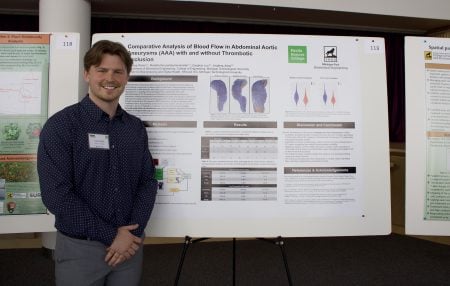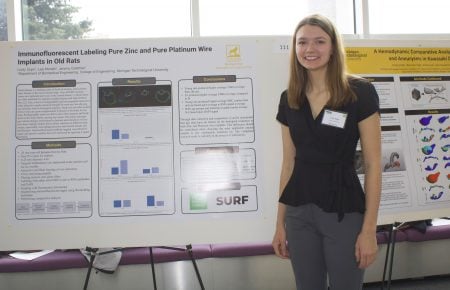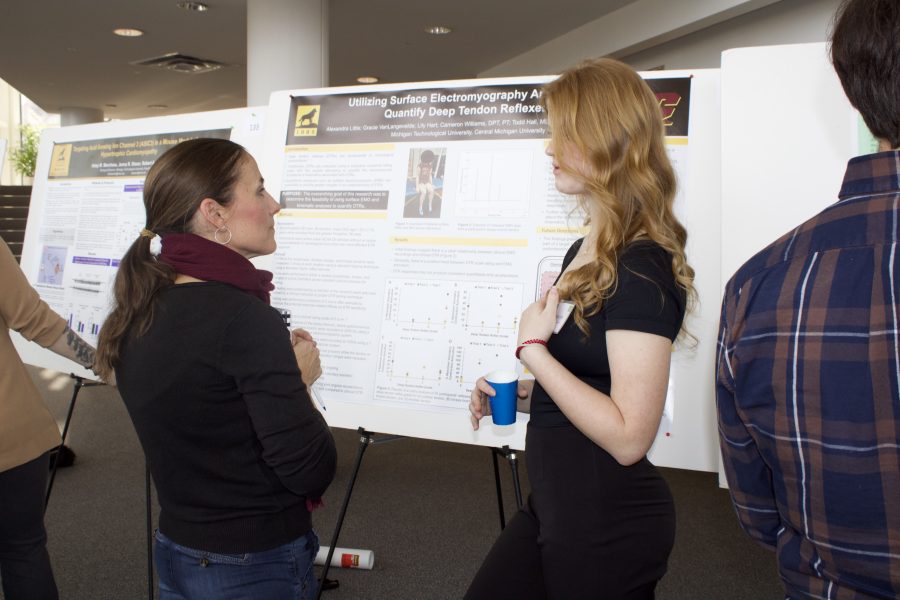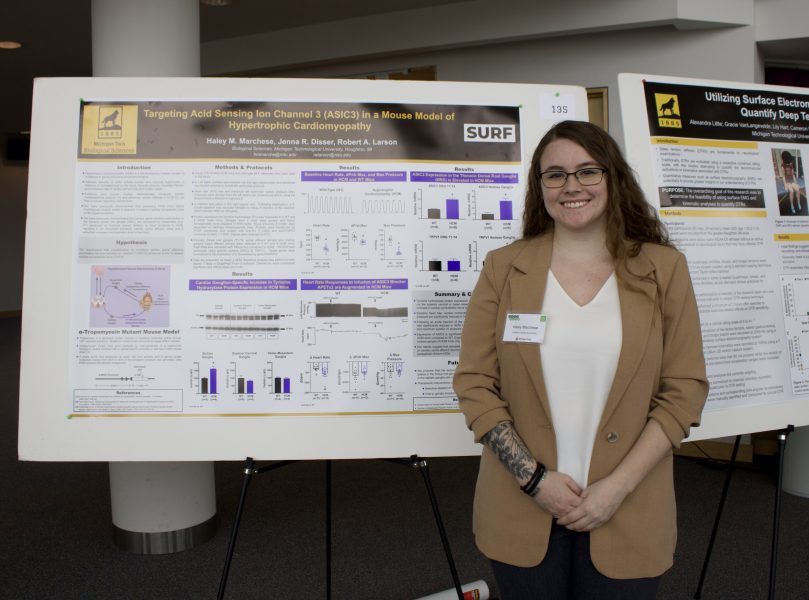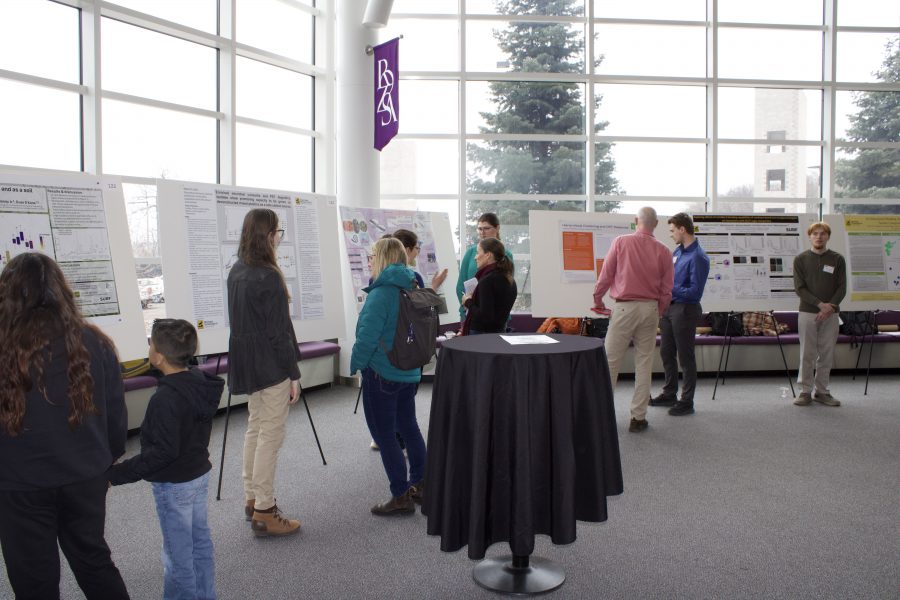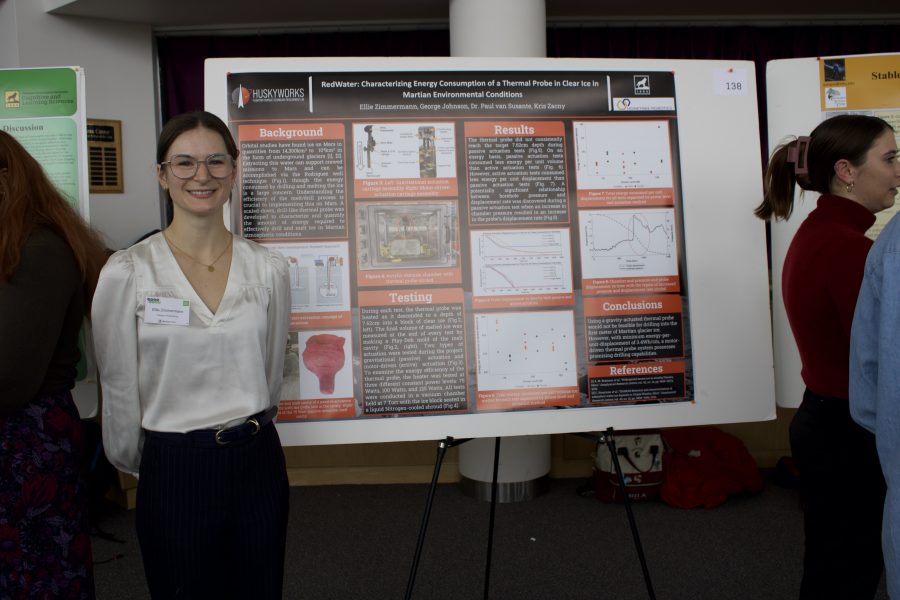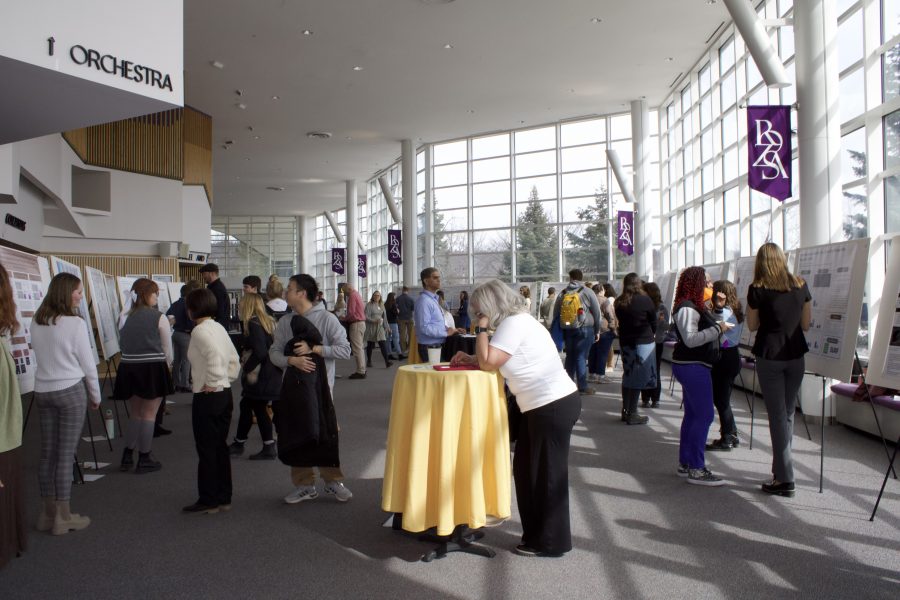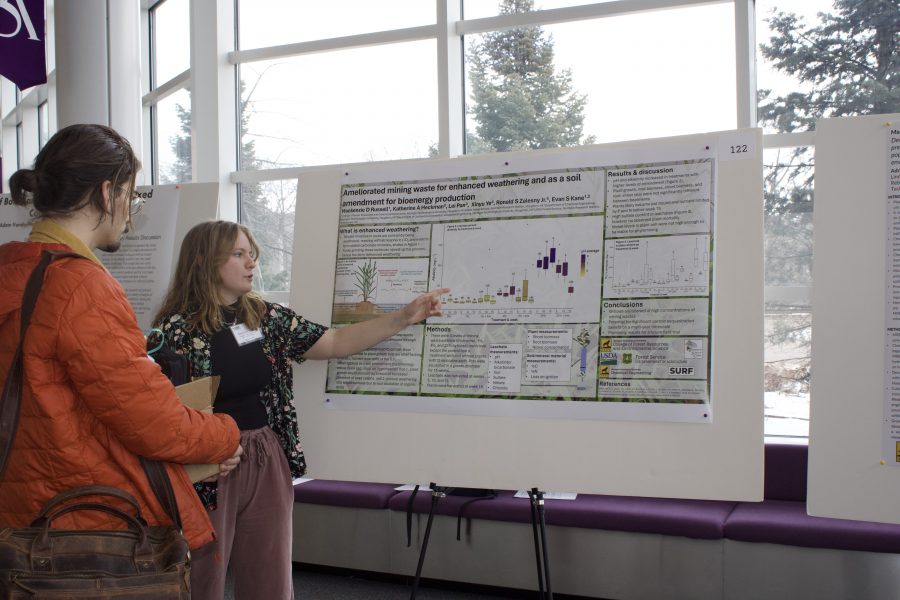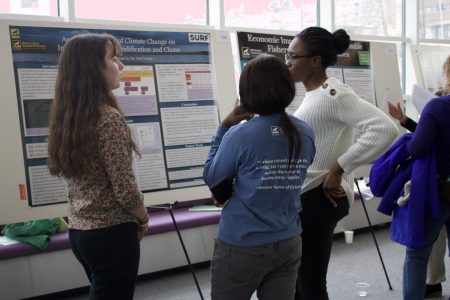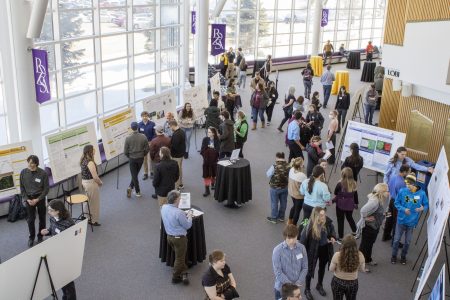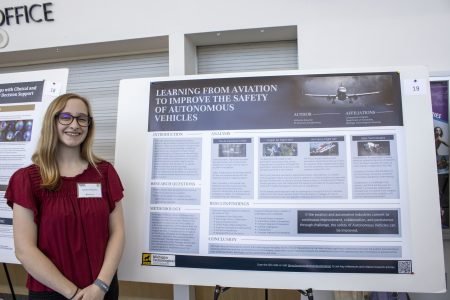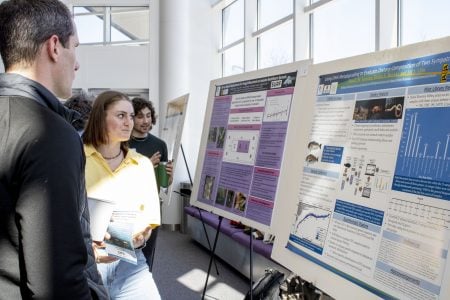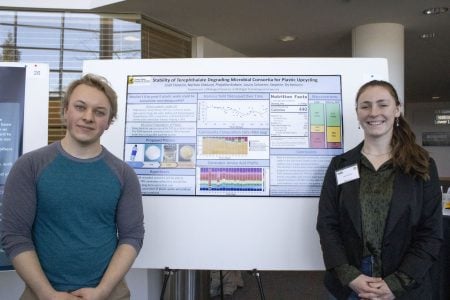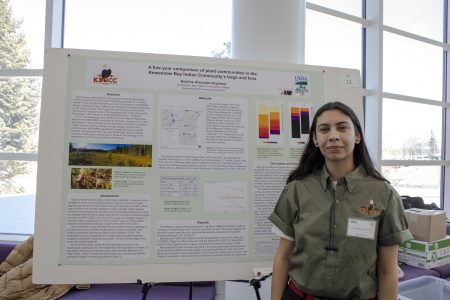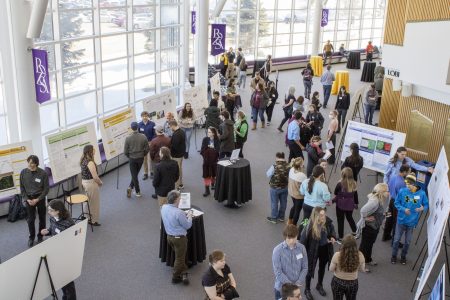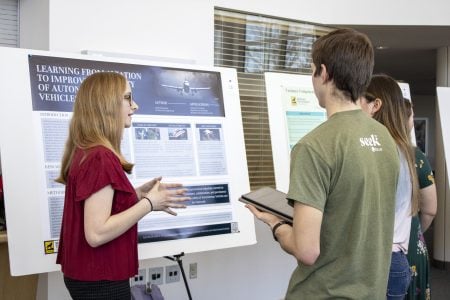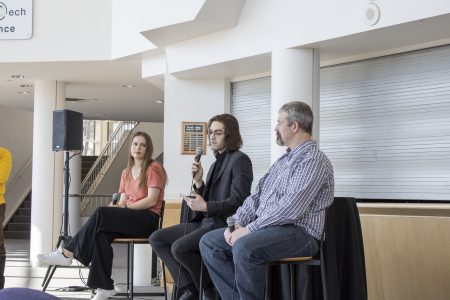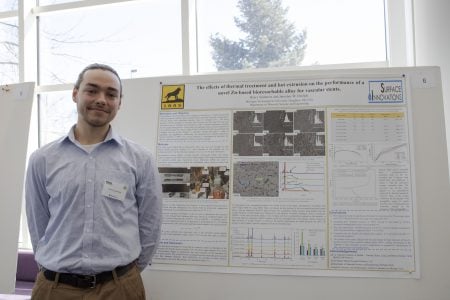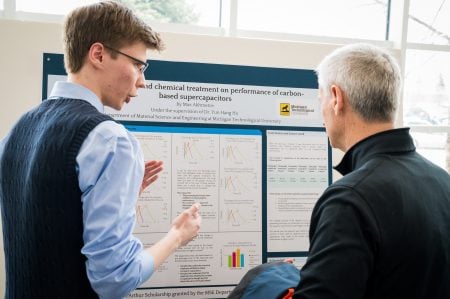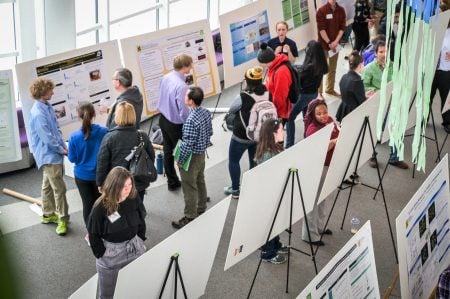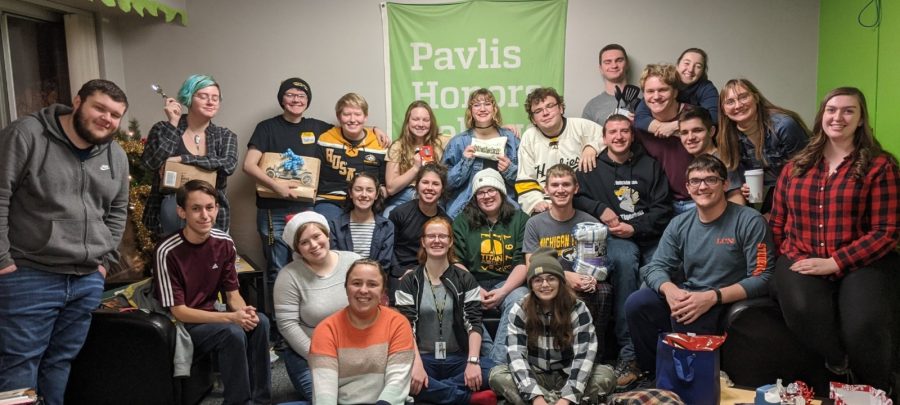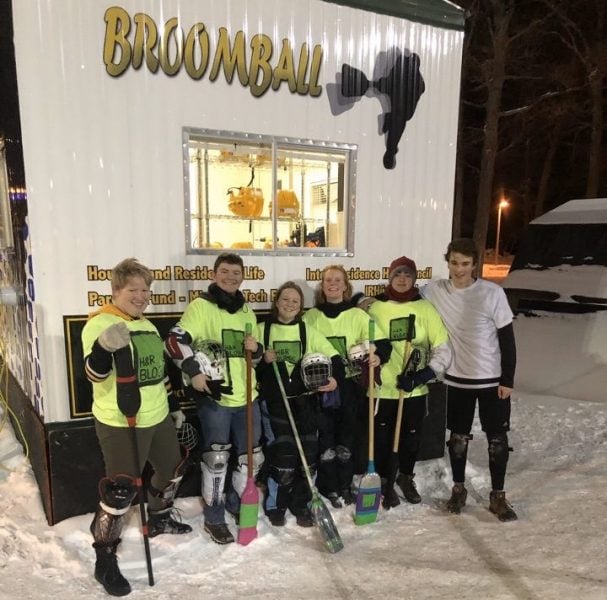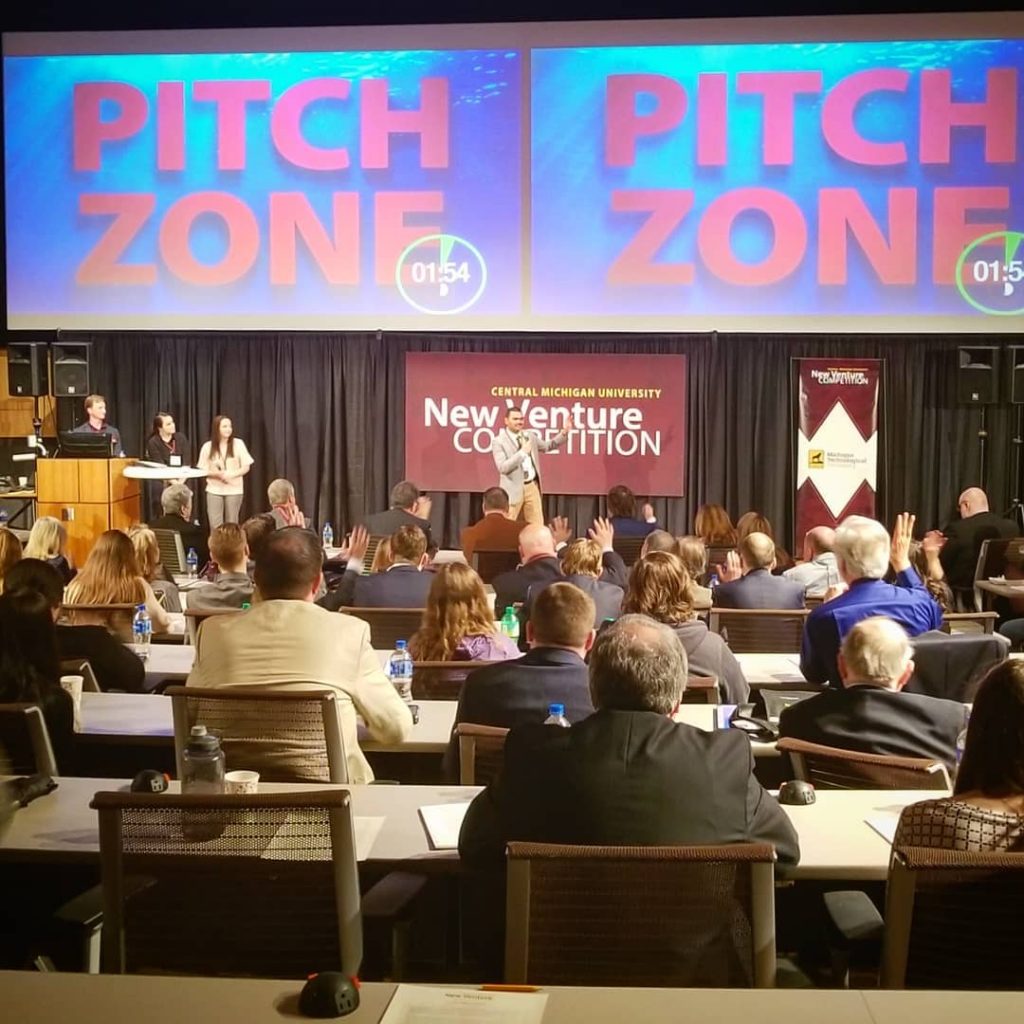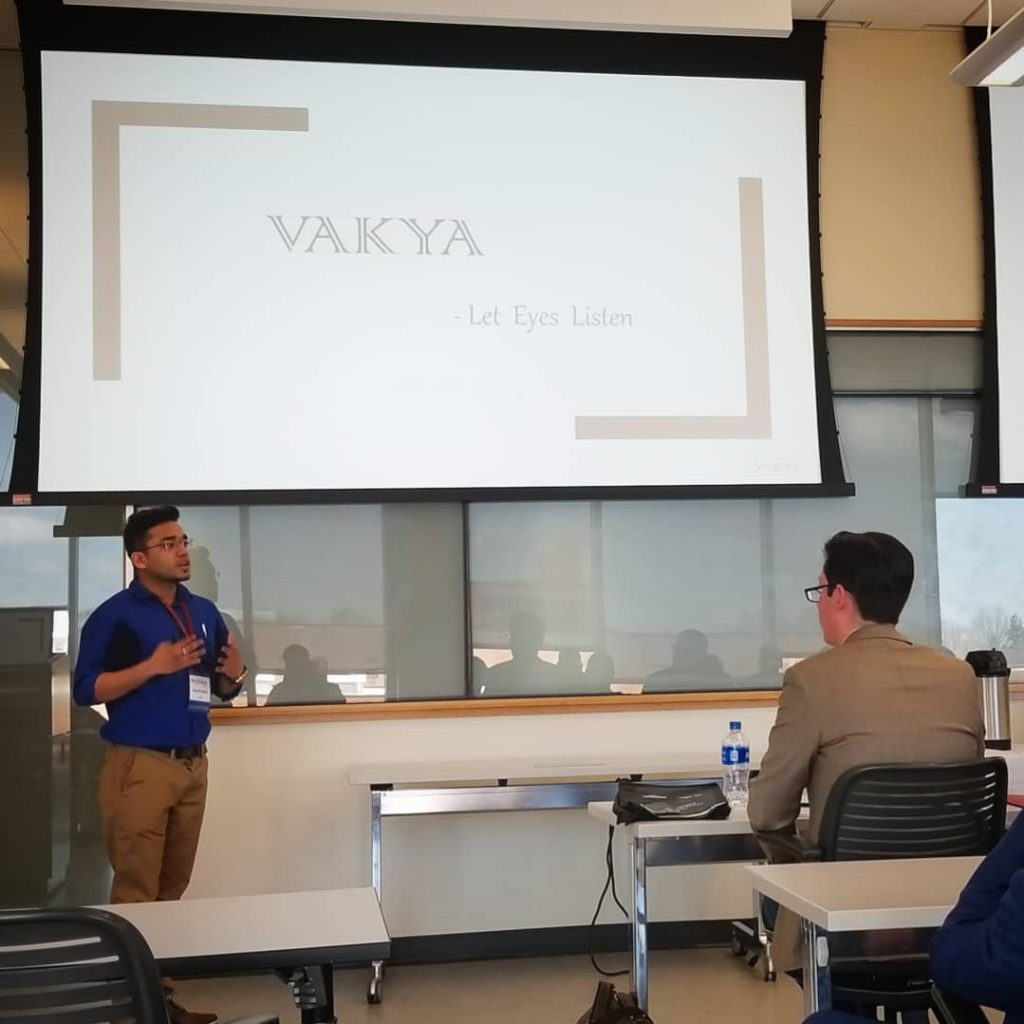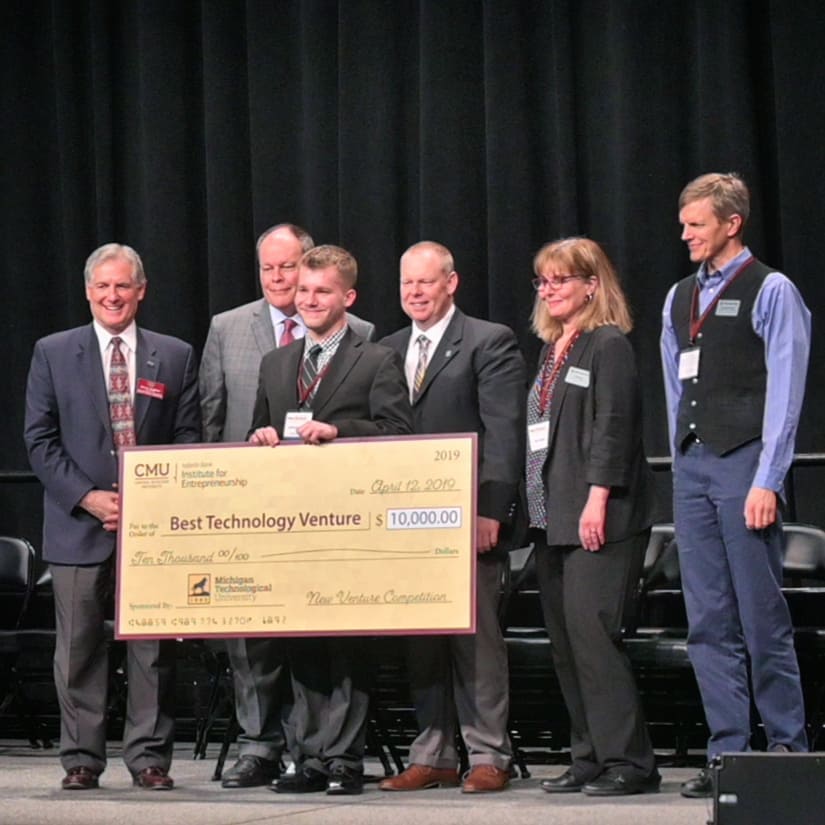On Friday, March 21, Michigan Tech’s Undergraduate Research & Scholarship Symposium (URSS) brought together students, faculty, staff, and community members to celebrate the innovative research being conducted by our undergraduates. This annual event, hosted by the Pavlis Honors College, showcased a wide range of projects spanning multiple disciplines, from environmental science to archaeology and economic development.
Throughout the afternoon, attendees engaged with student researchers, asked thought-provoking questions, and learned about the cutting-edge work happening across campus. At the end of the symposium, four outstanding projects were recognized with awards for their exceptional research, presentation, and impact.
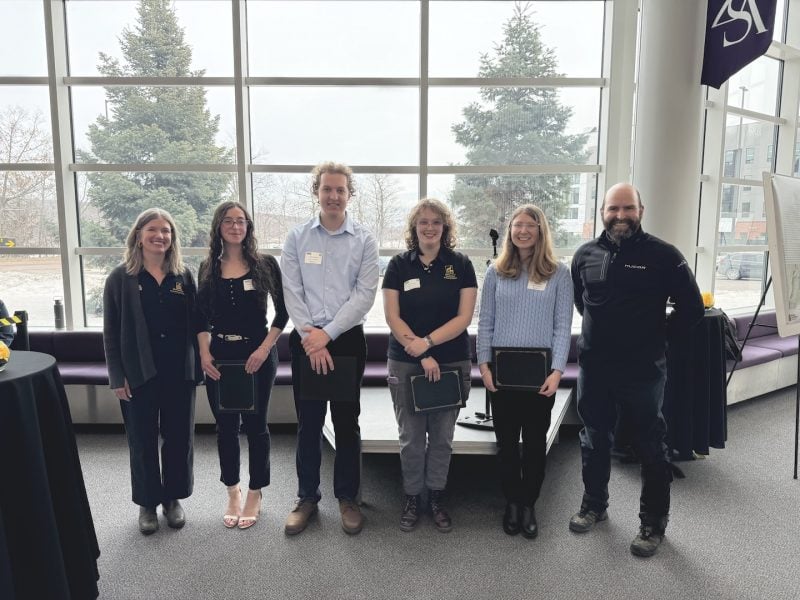
2025 URSS Award Winners
First Place: Grace Wallis – Antiviral Efficacy and Interaction Mechanism of Green Surfactants with Enveloped Viruses
Grace’s research explores sustainable, amino-acid-based surfactants as eco-friendly alternatives for virus inactivation in biopharmaceutical manufacturing. Her work provides critical insights into how these green surfactants interact with enveloped viruses, offering a safer and more sustainable approach to virus clearance.
Second Place: Marguerite Goldman – Economic Development and Educational Strategies for Michigan’s Western Upper Peninsula
Marguerite’s research examines the economic and educational challenges facing Michigan’s Western U.P. and proposes strategies to strengthen workforce development, expand higher education access, and drive regional economic growth, helping to create sustainable opportunities for local communities.
Third Place: Drew Schlaff – Energy Sources for Food Webs in Regional Lakes
Drew’s study investigates the balance between terrestrial and aquatic carbon sources in local lake ecosystems, using stable isotope analysis to better understand how these energy inputs impact food webs and contaminant pathways. His findings have implications for both environmental management and fisheries sustainability.
Audience Choice Award: Jenna DeVries – Lake Superior Mapping and Archaeological Exploration Using Uncrewed Technology
Jenna’s project utilizes advanced uncrewed technology to map the depths of Lake Superior, aiding in archaeological exploration and environmental monitoring. Her research provides valuable insights into underwater landscapes, revealing hidden structures and contributing to the preservation of submerged historical sites.
Congratulations to all of our winners and to every student who presented at URSS 2025! Your dedication and curiosity are a testament to the incredible research happening at Michigan Tech.
You can learn more about the impressive research being done by our students by looking at the complete list of participants in our URSS research booklet.
A special thank you to the faculty mentors, judges, and attendees who made this event a success. We look forward to another inspiring URSS next year!
